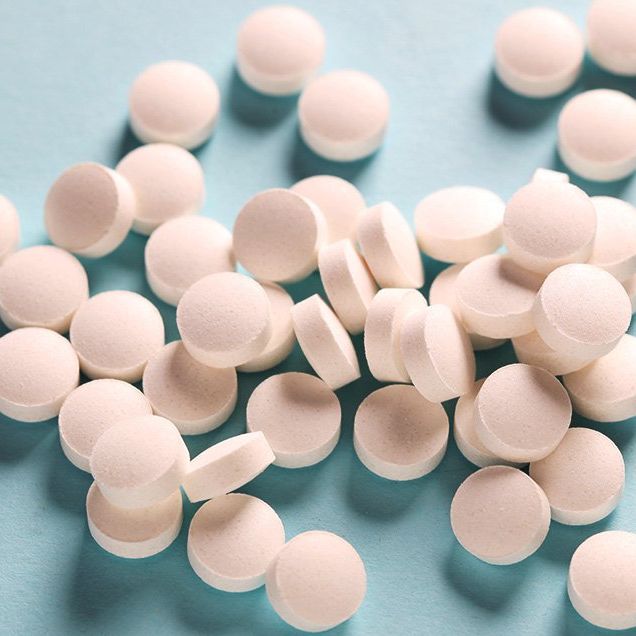Aspirin, that old-school OTC pain medication, may do more than tame your headache: It could help you live longer, too, a study presented at the 2017 American Association for Cancer Research Annual Meeting suggests.
That’s what researchers from Harvard Medical School concluded after studying more than 130,000 people over a follow up of up to 32 years. They discovered that men who used aspirin long-term were 11 percent less likely to die during that time than those who didn’t take the pills.
That result is primarily because aspirin appears to lower the chances of dying from various types of cancers—including colorectal, lung and prostate—by 15 percent.
Although previous studies have suggested that aspirin could help prevent some cancers and cut mortality rates, this is the first study to use such a large data sample size and long follow-up period.
The study also showed that it doesn’t take much aspirin to have an effect. Benefits were seen with use of between 0.5 and 1.5 standard aspirin tablets per week for both men and women. But time does seem to be on your side if you’re taking it—the minimum duration of regular use associated with lower cancer mortality was 6 years.
One possible reason that aspirin may have this effect is that the medication blocks an enzyme related to inflammatory substances called prostaglandins, according to the author of a previous study, Andrew Chan, M.D., M.P.H. of Harvard Medical School. That’s important, since prostaglandins can promote cell growth in the gastrointestinal tract, making cancer-causing mutations more likely. That’s why blocking prostaglandins there can lower risks of colorectal and gastrointestinal cancers.
Aspirin also has anticoagulant effects, the authors of the recent study add. This lowers the incidence of blood clots, and that may prevent cancer cells from growing into larger tumors.
While a minimal amount of aspirin is beneficial, and slightly more seems even better—in the study, those who took two to seven tablets per week had an even greater reduction in cancer deaths—there’s a limit. Those who popped more than that didn’t have more benefits, and a previous study has tied daily aspirin use to higher risk of gastrointestinal bleeding.
That means it may be worth a conversation with your doctor to see what your weekly aspirin intake should be.
Additional reporting by Christa Sgobba













